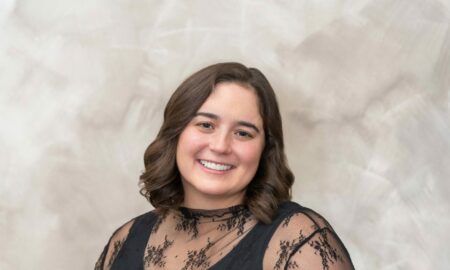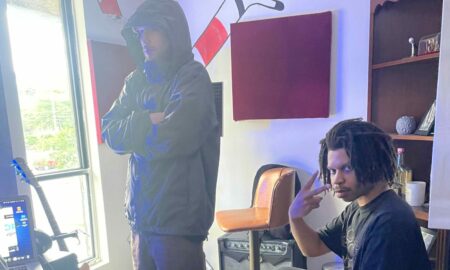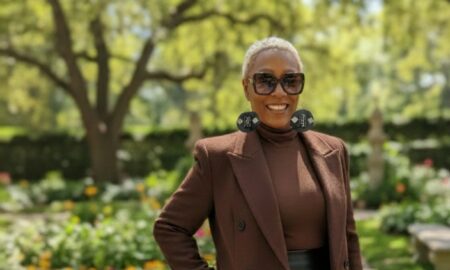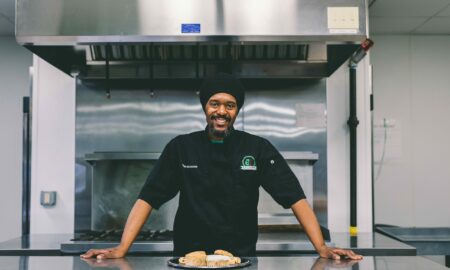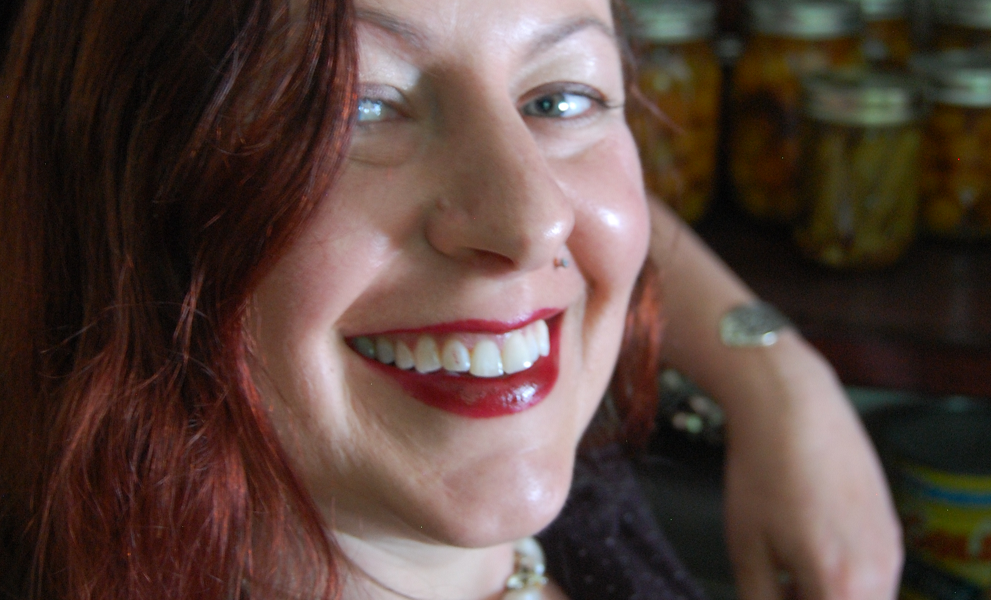

Today we’d like to introduce you to Julia Skinner.
Thanks for sharing your story with us Julia. So, let’s start at the beginning and we can move on from there.
My path to get here has been pretty twisty (but mostly fun). I started Root in March, after trying to find a way to combine all my professional and personal experience into something special that would be meaningful to my colleagues, community, and myself. I have an intentionally broad background, in part so that I can tackle problems from a number of vantage points, and use everything I’ve learned to build really big, exciting, creative things (and have all the big, exciting, creative ideas that go into that!) The history of food, and the centrality of food as a community building tool, have appeared and reappeared. After a few ‘aha!’ moments, it became clear to me that it was time to jump down that rabbit hole entirely and see where it led.
I started to dip my toes into food history as an area of study about a decade ago, and it has ended up intersecting with most everything else I’ve done. In my research life, it has appeared through multiple books, interviews, etc., although as is the case with a lot of food writing, some of what I end up researching (especially when doing research for clients) is never formally ‘published.’
My last job was as a rare books curator, where I served in a directorial role and did everything from curate exhibits to run community outreach programs, and one of my biggest accomplishments there was starting and building a food history collection. I also made connections with restaurants and other partners (like The Homestead, which is one of my favorite Atlanta organizations), which have continued to inspire my work. I’ve also worked in the hospitality industry, in libraries, nonprofits, visual art, and even as a public transit driver.
Even during my PhD program, which was in a different (but tangentially related) subject, I still made time for both the study and practice of traditional food (for example, I grow and can nearly all of my own preserves). The intersection between the practice of creating traditional food and the practice of studying our food traditions is very important to me: I find a much greater depth of understanding in doing as I learn.
As I started to talk with people more and more about the history of food and about what a window of self-discovery and a driver for interpersonal connection it has been, I discovered that a lot of people really wanted to connect to and experience that history but didn’t know where to start. I had been looking for a career path that felt more engaged in the community around me, and that could spark big, meaningful conversations and make room to bring in (and bring to the forefront) collaborators whose voices often get overlooked. Everything just came together in a perfect storm: My desire for a new path, a number of important reminders about the power food has to transform, and the realization that I actually could use all those skills I built in one place.
I found that there was not much out there that allowed me the ability to be responsive and flexible with my work, and so I decided starting my own thing might be the way to go. Currently. Root is a very open concept: I offer a whole suite of services that speak to different skill sets (research support for anyone from university faculty to the film industry, event/programming planning, menu design, helping preserve personal cookbook/recipe collections) as well as a couple products (a monthly membership program that includes weekly histories + recipes from around the world and discounts on all my other services, plus a few exciting new products that will be launching soon: A visual art series and an online workshop series). I also love collaborating with nonprofits and other community building folks.
I’m always open to talking with people about working together in other ways too (e.g. bringing in historic cultivars to a community garden, offering input on set design for historic films, and any number of other collaborations). I’ve purposefully chosen to keep things open right now so that my business can grow in a way that best speaks to the needs of my clients and to my skill sets.
There is a ton of interest in the business but, since there’s not much out there like Root, there aren’t templates for how it will grow or even what people will find most valuable about it. I find that incredibly exciting.
We’re always bombarded by how great it is to pursue your passion, etc – but we’ve spoken with enough people to know that it’s not always easy. Overall, would you say things have been easy for you?
It has and it hasn’t (not a helpful answer, I know).
Once I figured out that this is what I should be doing, I kept getting so many affirmations that I was on the right path, but I still sometimes find myself facing self-doubt. I think every new business owner goes through this, and most days I feel really confident, but it definitely comes up. I feel like for women business owners in particular, this can be an issue because we aren’t given the social space to learn confidence from an early age. I’ve had to grapple with my academic background too: I absolutely love research and teaching, but academia can also breed a lot of doubt in one’s own authority–it’s been (and sometimes is) quite a learning curve for me to walk into a space and say ‘yes I know that!’ or ‘yes I can do that!’ without imposter syndrome.
I also try to be mindful of spreading myself too thin, particularly with all the different focal areas my business has at this stage. I think that’s a very important approach for the reasons I mentioned before, but I also love my work (a lot!) and want to make sure I’m keeping things in balance.
We’d love to hear more about your business.
Right now, the company is just me, although as I do larger-scale events or other ambitious projects I’ll be bringing on staff more permanently (I do have a couple volunteers who help me now and then, which is amazing). I founded the company on the idea that food is a powerful engine for community building and self-discovery, and that I wanted to create a space to facilitate both. This means talking about the history of food, but also helping people see themselves in that history and making it feel relevant to the present day (and as something that can inform the future, too).
What I’m most proud of so far isn’t a particular event, or dish, or research project, but the real connections and amazing conversations that Root has fostered. Everyone I talk to is excited about the business not only because the subject matter is interesting, but also because it’s being shared by someone who wants to make that subject matter engaging and exciting, and inclusive of all the voices and experiences that inform where our food comes from and where it’s going. I use this perspective in everything I do.
What sets me apart is that I use the perspective to inform all sorts of things that are rarely lumped in one job and, because I’m not working for an institution, I’m able to say ‘I think my skills would really serve this project, I’m going to go for it’ without a second guess. This lets me use my skill sets that might not be front and center otherwise (like visual art) and eventually, will give my employees the space to bring all their varied skills in to play as well.
When it comes to Root’s more tangible achievements, two I’m really excited about are a series of dinner+conversation events that I’m building to bring together artists, cultural heritage professionals, nonprofit professionals (and a whole host of other folks) to build connections, and the online content I’ve created. Patreon and the Root website both host Root’s membership program, which offers an affordable and engaging way to learn more about food history, try your hand at making historic food, and hopefully reshape the way you think about what you eat and where it came from.
In tandem with that, I’m starting a series of online workshops that are meant to offer affordable guidance in preserving food through the seasons, for folks wanting to reconnect to their food and stretch out their harvests. I also mentioned my other services previously, which include individual consulting for any range of projects and industries, offering event support as well as planning events, and appraising and preserving personal cookery collections (cookbooks, recipe cards, etc.). I also offer catering services as well as some bakery services (this isn’t exactly ‘historic,’ but I love painting album covers on cakes for birthdays), as long as I have enough advanced notice.
What were you like growing up?
I was really interested in art and reading as a child, so it’s not a huge surprise that my career has intersected heavily with librarianship and with art. I was always drawing pictures, and always curious but perhaps not the most vocal child in a group of children, preferring to find answers more quietly or on my own than being the first to ask. That curiosity did translate to an adventurous nature, though, and I loved trying new things.
I also really liked the outdoors, and was fortunate that my parents took me hiking and camping as a kid, and that I had a fun backyard to play in. I have several memories of wearing frilly dresses for special occasions, and then promptly running out into the yard to play in the dirt, trying to not get too much dirt on my fancy clothes. I also remember the first time I saw the ocean as a toddler, my first instinct was to run right into it, much to the chagrin (or perhaps terror) of my parents.
Pricing:
- Most of Root’s services are project based, but my fee for hourly projects is $200/hour
Contact Info:
- Website: http://root-kitchens.com
- Email: julia@root-kitchens.com
- Instagram: www.instagram.com/rootkitchens
- Facebook: www.facebook.com/rootkitchens
- Twitter: www.twitter.com/rootkitchens
- Other: https://www.patreon.com/rootkitchens









Getting in touch: VoyageATL is built on recommendations from the community; it’s how we uncover hidden gems, so if you know someone who deserves recognition please let us know here.













